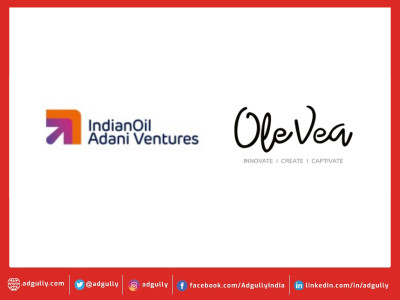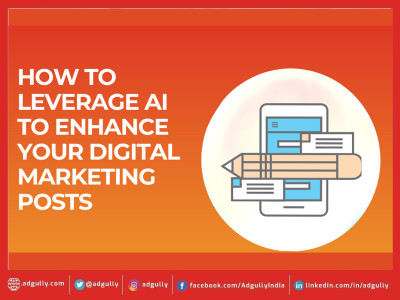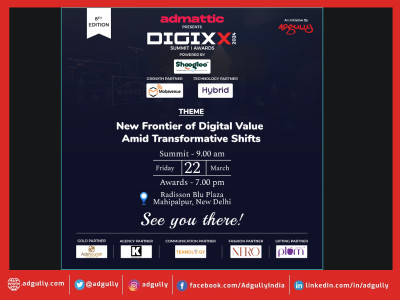Performance Marketing Trajectory- Navigating the Top Future Trends
Authored by Shashi Bhushan Singh
In the ever-evolving landscape of digital marketing, staying ahead of the curve is paramount for success. Performance marketing, a dynamic and results-oriented approach, is continuously adapting to emerging technologies and changing consumer behaviours. As we stand at the intersection of innovation and strategy, let's explore the top 10 future trends shaping the trajectory of performance marketing.
- AI-Powered Personalization:
Personalization has been a buzzword, but the future of performance marketing lies in leveraging artificial intelligence (AI) for hyper-personalized customer experiences. AI algorithms analyze vast datasets to understand individual preferences, allowing marketers to tailor content, offers, and recommendations with unparalleled precision. This not only enhances user engagement but also boosts conversion rates by delivering precisely what each user is looking for.
- Voice Search Optimization:
With the rise of voice-activated devices and virtual assistants, optimizing for voice search is becoming crucial. Performance marketers need to adapt their strategies to align with conversational queries. Long-tail keywords, natural language processing, and understanding the context of voice searches will be key components in driving performance in this evolving landscape.
- Inclusive Influencer Marketing:
Influencer marketing is shifting towards inclusivity and authenticity. Future trends in performance marketing involve collaborating with influencers who represent diverse voices and perspectives. Brands are recognizing the importance of authenticity in influencer partnerships, focusing on genuine connections rather than just follower counts. This approach builds credibility and resonates more effectively with diverse target audiences.
- Video Dominance:
The future of performance marketing is visual. Video content is already a powerhouse, and its dominance will continue to grow. Short-form videos, live streaming, and interactive video experiences will be central to capturing audience attention. Performance marketers should invest in creating compelling video content that tells a story and engages users across various platforms.
- Blockchain for Transparent Attribution:
Trust and transparency are paramount in the digital marketing ecosystem. Blockchain technology is poised to revolutionize performance marketing by providing an immutable and transparent ledger for tracking ad impressions, clicks, and conversions. This decentralized approach ensures trustworthy attribution, minimizes fraud, and builds confidence in the accuracy of performance metrics.
- Augmented Reality (AR) Experiences:
As AR technology becomes more accessible, performance marketers can leverage it to create immersive brand experiences. Interactive AR ads, virtual try-on experiences, and AR-enhanced product demonstrations can significantly impact consumer engagement and drive performance by providing a unique and memorable interaction with the brand.
- Zero-Party Data for Personalized Consent:
With increasing concerns about data privacy, the future of performance marketing revolves around zero-party data. This is data that consumers willingly share with brands, providing explicit consent for personalized experiences. Marketers will need to focus on building trust with consumers and offering clear value propositions to encourage the voluntary sharing of data.
- Ephemeral Content Strategies:
Ephemeral content, such as Stories on platforms like Instagram and Snapchat, has gained immense popularity. The disappearing nature of this content creates a sense of urgency and FOMO (fear of missing out). Performance marketers can capitalize on this trend by crafting time-sensitive offers, behind-the-scenes content, and exclusive promotions to drive immediate action.
- Multichannel Integration:
Future trends in performance marketing emphasize the importance of a seamless multichannel experience. Consumers interact with brands across various touchpoints, from social media to email to websites. Marketers need to integrate their strategies cohesively across these channels, ensuring consistent messaging and a unified brand experience.
- Sustainability and Social Responsibility:
Beyond product features, consumers are increasingly valuing brands that align with their values. Performance marketing strategies will need to incorporate sustainability and social responsibility initiatives. Brands that demonstrate a commitment to environmental and social causes can build stronger connections with socially conscious consumers, driving performance through purpose-driven marketing.


















Share
Facebook
YouTube
Tweet
Twitter
LinkedIn